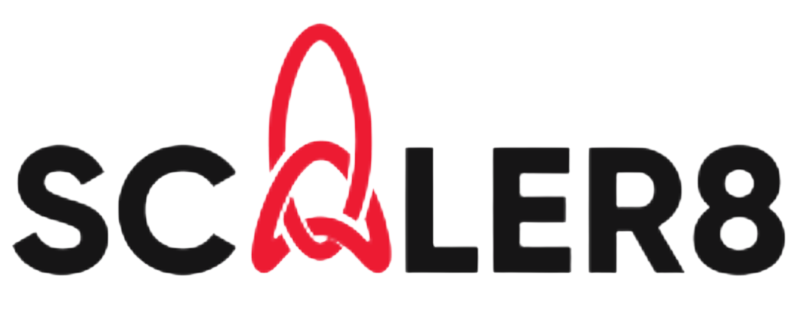8 Hiring Tips for Startups Entering A New Market
Simon Sinek, author of multiple best-sellers including “Leaders Eat Last”, “Start with Why” and most recently, “The Infinite Game”, said, “The ability of a group of people to do remarkable things hinges on how well those people pull together as a team.”
This rings true for any business, and doubly for startups, often operating against financial, market and investor pressures. With a team of highly skilled individuals, a startup can innovate faster, solve problems more creatively, and in general drive long-term growth.
In today’s interconnected world, the significance of global markets cannot be overstated. Startups aspiring to expand their horizons and venture into new territories, such as the United States, Asia, and Europe, must recognize the vital role of teamwork in their pursuit of success. It is not enough for startups to function as cohesive units solely within their local environments. To truly thrive in these international markets, startups must extend their collaborative efforts beyond borders, uniting their talents, skills, and expertise on a global scale.
But hiring and finding the best talent isn’t without its own difficulties; budget constraints, competition from more established companies, career uncertainty – just to name a few – are some of the common hiring challenges startups face when looking to expand to a new market.
In this article, we present 8 hiring tips for startups entering a new market from our market expansion experts at Scaler8.
1. Don’t Be Afraid to Hire Professionals More Experienced Than You
The business landscape as it stands today is one rife with competition. The only way for a startup to survive and thrive is to continuously improve and innovate. For a leader, it requires a willingness to embrace candidates with more experience in their fields; people that may be smarter, more knowledgeable, or more capable of outperforming.
Of course, this may run contrary to our innate instinct for self-preservation, and tap into the unspoken fear of being replaced, but as Matt Beeton, CEO of Port of Tyne put it, “Sometimes it’s essential to take a tactical bruise on that ego for the betterment of an organisation.”
Hiring people that are better or more experienced will not only improve how people perceive you as a manager, but it communicates a focus on shared success, and may even challenge your perspective and traditional methods of work. Best of all, it may free up time and space to focus on areas where more value can be delivered.
2. Expand Your Candidate Pool to Include Your Employees

A startup experiencing growth may immediately turn to external sources to expand its talent pool, however, it may be better to expand the candidate pool to include employees.
It goes without saying that performance is not always immediately apparent: it may take time to evaluate someone’s abilities. But if a team member is bringing value to the team and enthusiastic about taking on new responsibilities, it goes a long way towards employee retention to be proactive in promoting them.
3. Foster a Desirable Startup Culture

Driving recruitment without a culture in place to attract and foster retention is much like building a castle on a foundation of sand – precarious and liable to fall flat.
Compensation may play a role in winning over top talent but there are more contributive factors, such as flexibility, performance management, skill acquisition and brand reputation.
Employees today put a premium on mental health and flexible work arrangements, for example, demonstrate that your startup values employee wellbeing.
Performance management and skill acquisition, meanwhile, indicate that your company prioritises the growth of its employees and is willing to reward good performance.
A good brand reputation not only attracts prospects, but also also reassures current employees that they are part of a respected and reputable company – albeit up and coming.
Taken separately, these factors may have a limited role, but together the form the basis for an effective recruitment campaign.
4. Consider Prioritising Candidates That Share Your Startup’s Purpose & Values
Highly qualified employees are well and good but it means nothing if they are not willing to roll up their sleeves and be proactive, collaborative and relentless in pursuing your company’s goals.
Myles Hunter, cofounder and CEO of TutorMe, a leading online tutoring solution, suggests using take-home assignments during the hiring process to gauge a candidate’s dedication to the job.
“When we were hiring SEO analysts” he states, “We gave them (candidates) a landing page from our website and asked, “How would you go about changing this page?” These take-homes can require several hours to complete, so when applicants do them well, we know that they’re truly dedicated to the work we’re doing.”
In addition, candidates like these will serve as ambassadors for your company; they can help recruit like-minded team members with the necessary expertise.
5. Explore Different Channels to Source Talents for Your Startup

Job boards are often the most obvious place to hire new talents, but they are far from being the only place. Social media and industry platforms are a great way to hone in on candidates that may be a great fit for your startup.
Alternatively, you can cast a wider net by setting aside time in your calendar to network with new or familiar people in the startup community. Talk to them about your hiring needs or learn about their interests; you may very well find just the candidate you need.
If the hiring process is time-consuming or takes a toll on your limited human resources, then hiring a staffing agency or a Professional Employer Organisation may alleviate the burden.
6. Consider Hiring Remotely
Thanks to the widespread availability of high-speed internet, the development of communication technologies such as video conferencing and messaging tools as well as the proliferation of cloud-based platforms, remote work is fast becoming a viable option for startups.
Outside the cost savings from extra office space and equipment for new hires, hiring remotely widens your candidate pool to include talents in other geographical areas that may be more skilled or cheaper to hire.
7. Anticipate Compliance and Legal Obligations
Prior to starting the talent acquisition process, it is important to take into consideration any legal or compliance-related restrictions that may apply to hiring.
These can vary depending on what countries your startup intends to hire from. This may include payroll obligations such as permissible modes of payments, income tax, rules on payment periods; employee obligations such as parental leave, annual vacations, termination with cause; or permanent establishment risks.
In some countries, the extent to which a startup’s presence is ‘fixed’ or ‘ongoing’ may determine whether it is treated as a permanent establishment. Permanent establishments may be required to pay corporate income tax.
By anticipating these aspects, a startup can avoid running afoul of the law or adding a hefty cost to its recruitment drive.
8. Setup a Hiring Framework

Before launching a recruitment campaign, it is essential to set up a hiring framework that takes into account the needs of the startup, available resources, and the success metrics for identifying suitable candidates at a specific price point.
Some of the questions it needs to answer include:
- Talent gaps within the organisation
- How many workers are needed
- Should you hire internationally or locally?
- Is it necessary for staff to be in office, or can your startup accommodate hybrid or remote set ups
- Are employees critical or are freelancers more than enough
- Cost of labour: salary, mandatory benefits, payroll taxes e.t.c—locally and internationally.
By taking into account all these various elements, your startup will be better prepared to address its short and long term hiring needs.
Final Thoughts
Competent team members are crucial to the success of any organisation, especially startups. With a diverse range of skills, they bring valuable experience, fresh ideas, and contribute to building a positive culture. By fostering a culture of teamwork that transcends geographical boundaries, startups can harness the collective strength of their diverse teams to navigate the challenges and seize the opportunities presented by the key markets like the United States, Asia, and Europe. Therefore, investing time and effort in recruiting and shortlisting top talent can yield significant dividends in the long term.
At Scaler8, we are dedicated to empowering startups and small and medium-sized enterprises (SMEs) with the resources and guidance they need to enter and thrive in international markets. We offer a wide range of services, from business strategy to negotiations, incorporation, and talent acquisition, so that the complexities of international expansion do not hinder your business growth.
Contact us today to learn how we can help your business reach greater heights.




